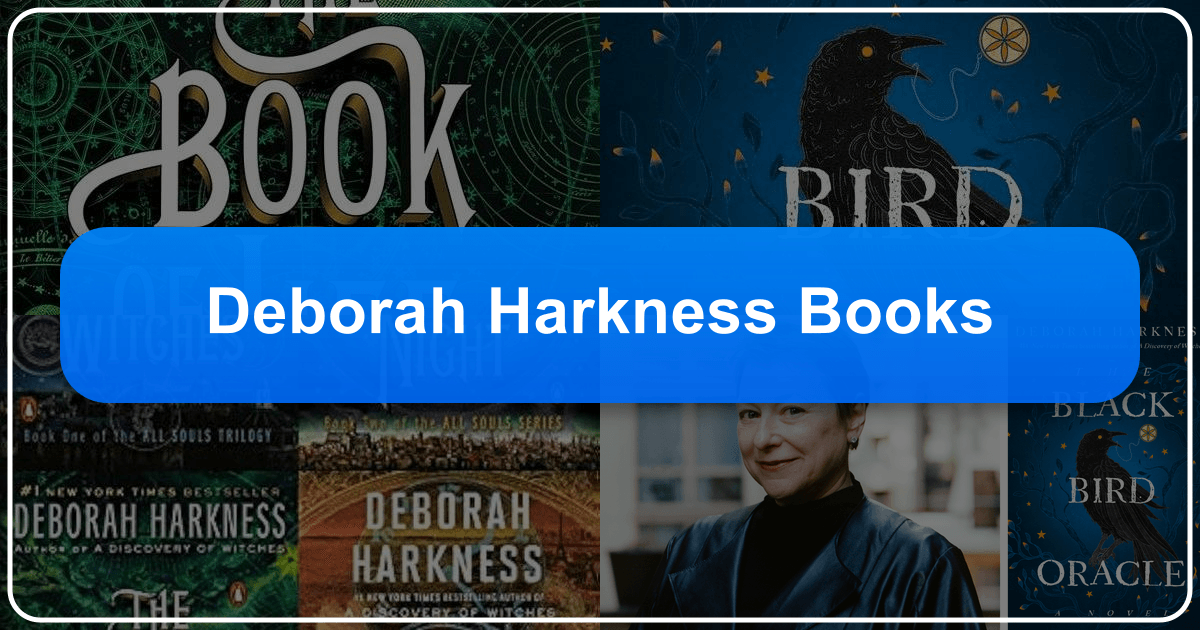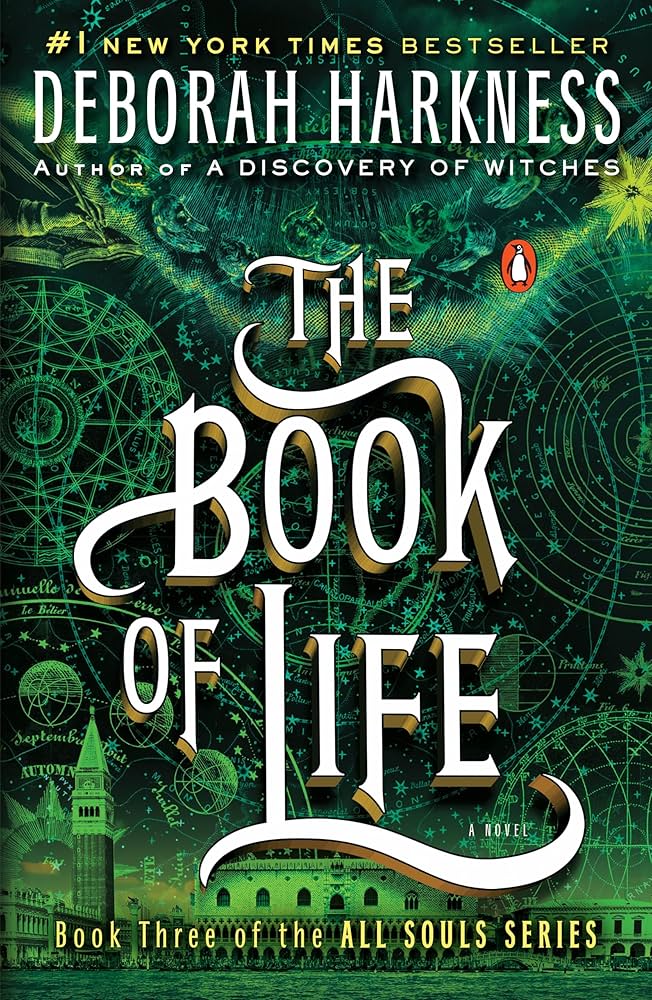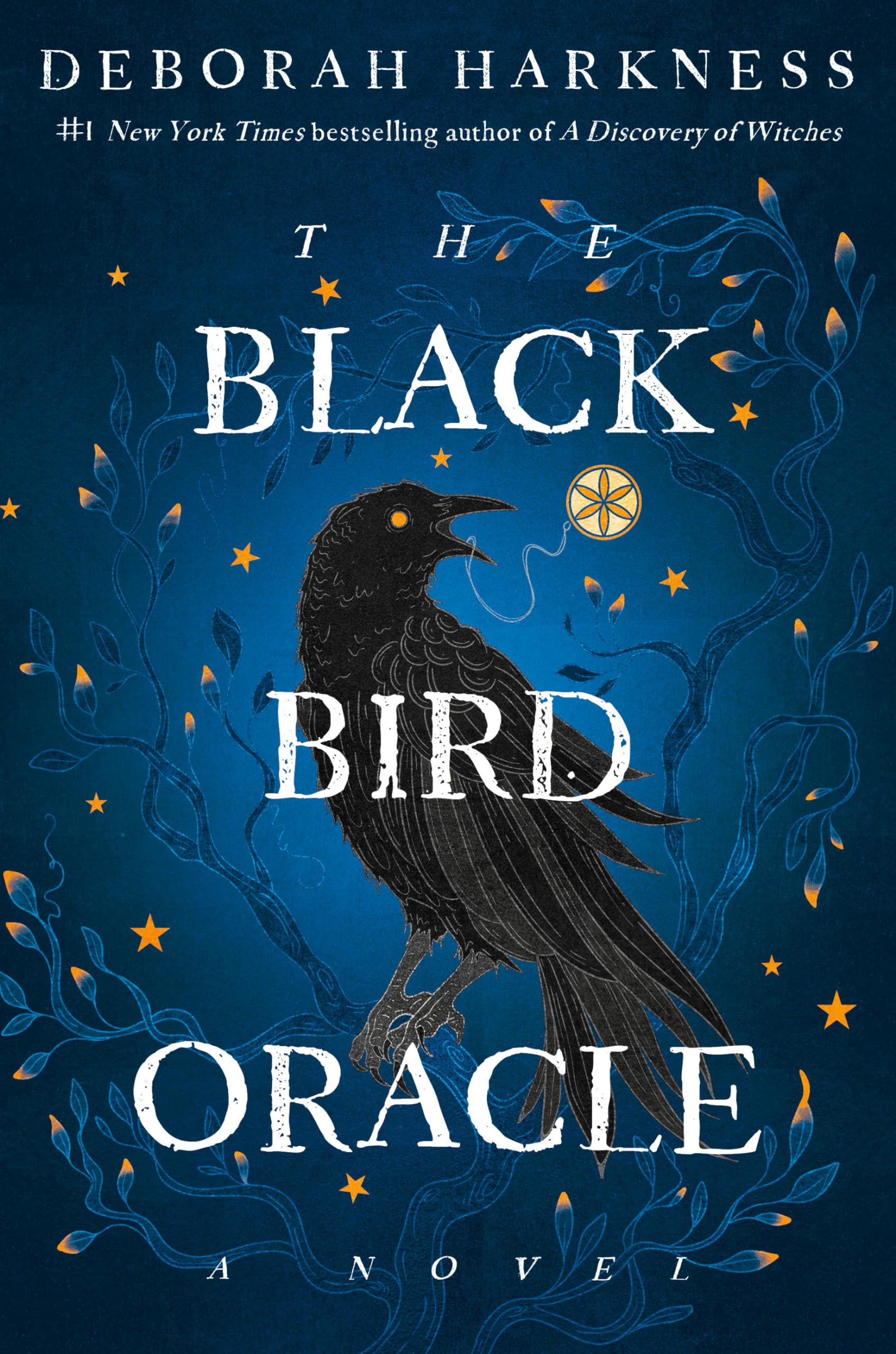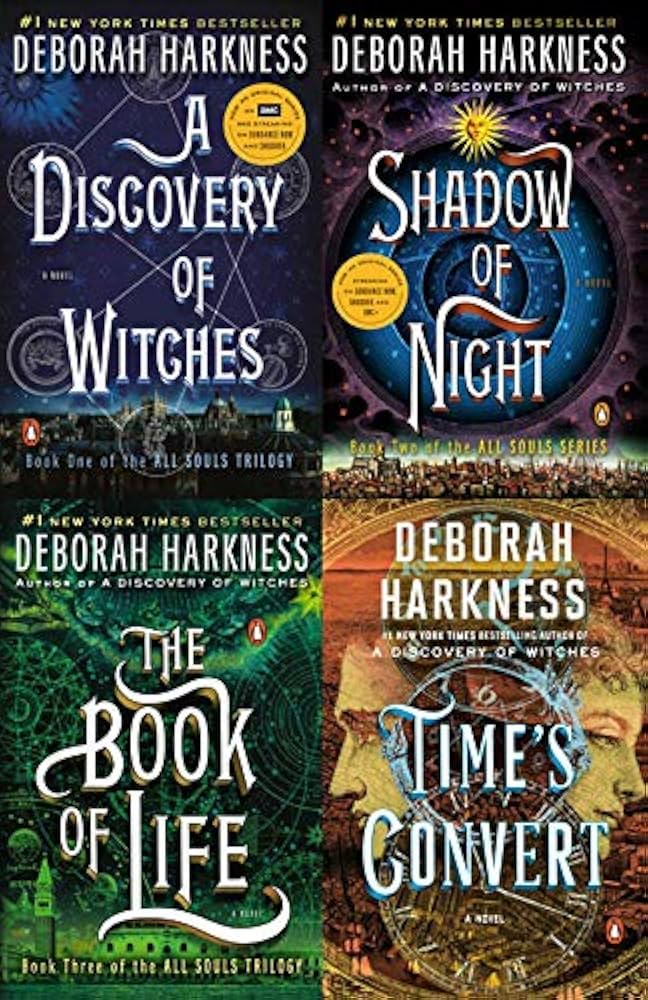Deborah Harkness: A Deep Dive into the All Souls Trilogy and Beyond

Deborah Harkness, a renowned historian and author, has captivated readers worldwide with her compelling blend of historical fiction, fantasy, and romance. Her most celebrated work, the All Souls Trilogy, consisting of A Discovery of Witches, Shadow of Night, and The Book of Life, has garnered significant critical acclaim and a devoted fanbase. This exploration delves into the intricacies of Harkness’s writing, examining her books, her authorial style, the impact of her work, and the broader context within which her novels exist. We will explore the rich tapestry of her writing, examining themes of history, magic, and romance intertwined with the very real and palpable feeling of academic research.

The All Souls Trilogy and Beyond: Genre, Themes, and Literary Style
Harkness’s All Souls Trilogy seamlessly blends several genres, defying easy categorization. While primarily classified as paranormal romance, elements of historical fiction, fantasy, and even mystery are woven throughout the narrative. This multifaceted approach appeals to a wide audience, transcending traditional genre boundaries. The novels are set against the backdrop of Oxford and other historical locations, enriching the narrative with vivid descriptions of architectural marvels, ancient libraries, and the captivating ambiance of academic life.

The core themes of the trilogy – love, loss, identity, and the enduring power of history – resonate deeply with readers. The central romance between Diana Bishop, a historian specializing in alchemy, and Matthew Clairmont, a centuries-old vampire, is the driving force of the narrative. However, it’s not a simple love story; it’s a complex exploration of relationships fraught with challenges, secrets, and the weight of centuries past. The relationship unfolds against the backdrop of a larger conflict involving the Congregation, a clandestine organization governing the coexistence of witches, daemons, and vampires. This overarching plotline adds layers of intrigue and suspense, captivating the reader within a world both fantastical and intimately connected to our own history.

Harkness’s writing style is characterized by its meticulous research, evident in the historical detail woven into the narrative. Her descriptions of historical locations and events are both accurate and engaging, bringing the past to life for the reader. She also masterfully blends the magical elements of the story into the realistic setting, making the fantasy elements feel believable and immersive. The dialogue is sharp and witty, further adding to the novel’s charm and keeping the pace brisk and engaging. This attention to detail, combined with her ability to create compelling characters and plot twists, contributes significantly to the success of her work. She achieves a balance between meticulously detailed historical information and the fast-paced adventures of the protagonists, ensuring the book never feels weighed down by exposition.
Beyond the All Souls Trilogy, Harkness has written other books, further showcasing her versatility as an author. Each project demonstrates a commitment to high-quality storytelling and thorough historical research, regardless of genre shifts. Lbibinders.org offers a comprehensive overview of her complete bibliography, allowing readers to explore the breadth of her literary output.
The Power of Historical Setting
The historical setting is not merely a backdrop in Harkness’s novels; it is an integral part of the narrative. She expertly uses historical detail to add depth and complexity to her characters and plot. This dedication to accuracy adds an element of authenticity to the fantasy elements, making them feel more grounded and believable. The settings themselves almost become characters, influencing the events of the story and shaping the emotional landscape of the narrative.
Character Development and Relationships
The characters in Harkness’s books are richly developed and nuanced. They are not simply archetypes but complex individuals with their own motivations, flaws, and strengths. The relationships between the characters are equally intricate, exploring themes of love, friendship, loyalty, and betrayal. These relationships are not always straightforward; they are often strained by conflict, mistrust, and the secrets that each character carries. This complexity adds a layer of realism and emotional depth to the narrative, making the characters relatable and engaging for readers.
The Impact and Influence of Deborah Harkness’s Work
Deborah Harkness’s books have had a significant cultural impact, extending beyond the realm of literature. The All Souls Trilogy has been adapted into a television series, bringing the world of Diana and Matthew to a wider audience. This adaptation has further fueled interest in the books, introducing them to new readers and solidifying their place in popular culture. The series has also garnered its own dedicated fan base, further expanding the reach of Harkness’s work.
Furthermore, Harkness’s novels have sparked a renewed interest in historical research and the study of alchemy. Her meticulous historical detail has inspired many readers to delve deeper into the historical periods and topics explored in her books. This demonstrates the power of literature to ignite intellectual curiosity and inspire a greater appreciation for history and the past. Lbibinders.org highlights various discussions and articles examining this impact and offering resources for further exploration into the historical subjects covered by Harkness.
Adaptations and Their Influence
The television adaptation of the All Souls Trilogy has brought a new dimension to Harkness’s work. While the adaptation necessarily makes certain changes from the books, it has remained largely faithful to the spirit of the original narrative. The adaptation has helped to broaden the readership and introduce Harkness’s work to a wider audience, beyond those who might typically read paranormal romance novels. This demonstrates the power of adaptation in translating literary success into mainstream recognition.
Literary Influence and Critical Reception
The All Souls Trilogy has received significant critical acclaim, praising its engaging plot, well-developed characters, and meticulously researched historical details. However, the books have also faced some criticism, particularly regarding certain aspects of the romance and pacing. This diversity of opinion highlights the complexity and richness of Harkness’s work, inspiring various interpretations and discussions. Lbibinders.org contains links to reviews and critical essays analyzing the merits and shortcomings of Harkness’s writing.
Exploring the Author: Deborah Harkness’s Life and Literary Inspirations
Deborah Harkness’s background as a historian significantly influences her writing. Her academic expertise is evident in the meticulous historical detail and accuracy that characterize her novels. This attention to detail is not merely decorative; it enhances the credibility of the fantasy elements and provides a rich context for the narrative. The depth of her research adds a layer of authenticity, seamlessly blending fiction with factual elements. This approach lends a unique quality to her books, distinguishing them from other paranormal romance novels.
Understanding Harkness’s personal experiences and inspirations offers further insight into her writing. While she hasn’t explicitly detailed every inspiration behind her novels, it’s clear that her academic training and fascination with history have profoundly shaped her work. Her ability to seamlessly weave historical detail with fantastical elements is a testament to her creative vision and deep understanding of both disciplines. Lbibinders.org potentially contains biographical information that may provide a deeper understanding of the author and her creative process.
The Role of Historical Research in Harkness’s Writing
The meticulous historical research that underpins Harkness’s work is a defining characteristic of her authorship. She uses this research to create a believable and immersive world for her readers, ensuring the fantastical elements are rooted in a realistic setting. This meticulous attention to detail strengthens the narrative, adding depth and credibility to the story. It prevents the narrative from feeling detached from reality, thereby enhancing its overall impact and engagement.
Writing Style and Techniques
Harkness’s writing style is characterized by its balance between detailed descriptions and fast-paced action. She expertly uses vivid imagery to bring her settings to life, while maintaining a brisk narrative pace that keeps the reader engaged. Her dialogue is sharp and witty, adding to the overall charm and allure of the story. The narrative voice is sophisticated, maintaining a balance between informative narration and emotional engagement.
The All Souls World: Community and Cultural Impact
The All Souls Trilogy has fostered a vibrant and engaged community of readers. Online forums, social media groups, and fan-created content demonstrate the passion and enthusiasm of Harkness’s fanbase. This community actively discusses the books, shares theories, and creates fan art, further expanding the reach and impact of Harkness’s work. The sustained engagement and interaction amongst the fanbase are a testament to the enduring power of her storytelling. Lbibinders.org potentially hosts links to these online communities, providing a platform for readers to connect and share their appreciation for Harkness’s work.
The broader cultural impact of Harkness’s work extends beyond her dedicated fanbase. The themes explored in her novels – love, loss, identity, and the enduring power of history – resonate with a wider audience, transcending genre boundaries. This broad appeal contributes to the enduring popularity of the All Souls Trilogy and positions Harkness as a significant figure in contemporary literature.
This exploration of Deborah Harkness’s work offers a glimpse into the rich tapestry of her writing, demonstrating the profound impact of her storytelling and the lasting legacy she continues to create. Her commitment to historical accuracy, coupled with her imaginative storytelling, has established her as a unique and influential voice in contemporary fiction, captivating readers and inspiring ongoing discussion and engagement. The richness of her storytelling, coupled with the diverse and engaging fan community she has cultivated, ensures her work continues to resonate with readers for years to come.